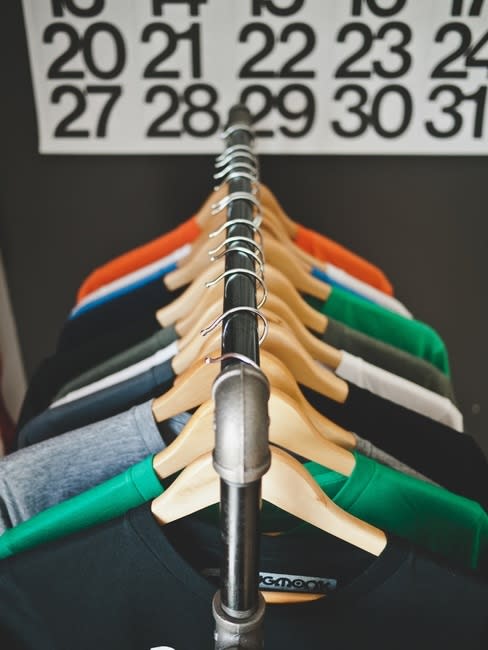Smart Clothes Tell You What To Wear And What To Share

[Photo: Jeff Sheldon/Unsplash/Pexels]
We all own a few items of clothing that haven’t been worn in a while. And if you don’t, you’re probably Marie Kondo or the High Sparrow from Game Of Thrones. But for the rest of us, the guilt that accumulates with every opening of the wardrobe needn’t hold us hostage anymore.
The Internet Of Clothes is a new project from Birmingham City University (BCU) and Internet of Things software company Evrything. It creates a database of clothes for use in a variety of ways. Items can be tagged at the point of manufacture, enabling them to be instantly digitised and facilitating their journey from first owner to last. Clothes are tagged with a washable, contactless technology known as radio-frequency identification (RFID). This is hooked up to a system in your wardrobe which takes stock of the garments’ frequency of wear, which will then automatically tweet reminders of their existence and how unloved they are. It can even suggest what to wear based on the weather! If they remain unworn after a certain period, they offer themselves to charities and a pre-paid bag arrives in your post. Who knew giving could be so creepy!
If it all seems a bit much for the sake of remembering what has and hasn’t been worn, there’s a deeper motive; it’s about bringing awareness to the wasteful ways in which we dress ourselves. Senior Lecturer in Future Media at BCU Mark Brill is one of the key figures behind the project: “Developed countries are over-consuming clothing… clothing production is highly damaging to the environment, from the petrochemicals used in synthetics to cotton growing that uses more pesticides than any other crop.” Reducing the casual consumption of clothes is the key message here.
The clothing industry is well known for the exploitation of its workers, low wages and appalling conditions. The thousands dead and injured in the Rana Plaza collapse in Bangladesh being one of the major headlines to hit the world news in recent times, and the slave labour issue is what gave rise to companies such as American Apparel, who up until recently manufactured all their clothes in downtown LA for real wages. The rise of companies such as Inditex (parent company of Zara, Massimo Dutti, Pull & Bear and more) with their vertical integration and in-house manufacturing only makes the situation worse by pumping out garments within three weeks of conception, and so the cycle continues.
The focus is on re-addressing the way we dress ourselves by choosing higher quality clothes with better longevity, made fairly by workers who care and ultimately making us that little happier when we open the wardrobe. No more cheap, unworn tops with the tags gathering dust, just happy outfits that make us feel good about ourselves and the world around us.
You can read more about the project here.
Celebrity Fashion Hits And Misses: August 27-September 2
Designer Breaks Record for Longest Train to Ever Appear on a Catwalk

